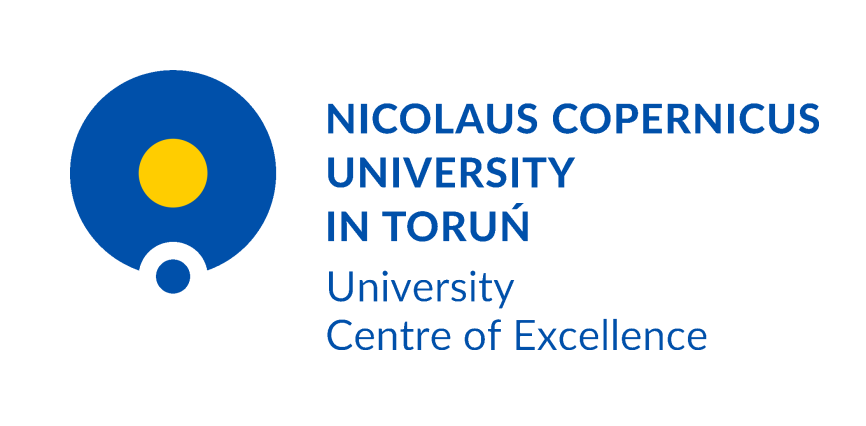PAST Team
PAST – Past Environment, Societies and Cultures – Multidisciplinary Perspective
The PAST team consists of researchers from the Institute of Archeology NCU. They conduct multidisciplinary studies covering epochs from the Paleolithic to Modern Times. The main research topics of the team include socio-cultural (magic, rituals, religion, economy), socio-natural (exploitation of fauna and plant resources, migrations, changes in the natural environment, extinction of species) and technological phenomena (production of objects, exploitation and processing of raw materials). Detailed research scopes concern:
- the functioning of Paleolithic, Mesolithic and Neolithic social groups in the natural environment;
- the history of the Slavs, their religion, the beginnings of states, contacts with the Scandinavian and Baltic peoples;
- an impact of social groups on the variability of plant communities during the Anthropocene;
- the importance of animals and plants in social history;
- social and natural conditions of the processing of organic and inorganic raw materials;
- the functional and spatial structure of the settlement of human groups in the context of natural and cultural factors.
Research is carried out through field archaeology (excavations – collecting and recording data), laboratory works (microscopic observation, data description, processing and modelling), archaeozoology), archaeobotany, traceology and experimental archaeology, and biomolecular research (genetic, isotopic, biochemical and geochemical analyzes).
Team Leader: Prof. dr hab. inż. Daniel Makowiecki (read: Team Leaders)
Members:
1. Prof. dr hab. Wojciech Chudziak (wojchud@umk.pl)
Google Scholar, Research Gate, ORCID
2. Dr hab. Agnieszka M. Noryśkiewicz (agnieszka.noryskiewicz@umk.pl, anorys@umk.pl)
Google Scholar, Research Gate
Professor in Nicolaus Copernicus University, Department of History, Institute of Archeology, Department of Environmental Archaeology and Human Paleoecology;
Research interests:
• Late Glacial and Holocene history of vegetation (palaeoecological studies – mainly pollen analysis method);
• human-environment relationship in prehistoric periods;
• changes in the vegetation and climate of northern and central Poland during the Late Glacial and Holocene
• vegetation-pollen interactions as an assist in the interpretation of fossil pollen diagrams (annual pollen monitoring)
• funeral rituals in archaeobotanical study
• botanical composition of bee hives (melissopalynology)
Scientific achievements:
• author or co-author more than 150 publications;
• member of Polish Botanical Society; Centre for Climate Change Research; Pollen Monitoring Programme; Stowarzyszenie Archeologii Środowiskowej (Association of Environmental Archeology); Towarzystwo Przyjaciół Dolnej Wisły (Lower Vistula River Friends Society)
• participant in a LAPBIAT2 project (Lapland Atmosphere-Biosphere Facility) – 2002
• laureate of the conference scholarship of the Foundation for Polish Science – 2003
• participation in multidisciplinary and international project ICLEA – Virtual Institute for Integrated Climate and Landscape Evolution Analyses
• participation in the research project “The dynamics of Late Glacial and Holocene vegetation changes in the light of isopollen maps” ended publication . Late Glacial and Holocene history of vegetation in Poland based on isopollen maps, ed. by M. Ralska-Jasiewiczowa, M. Latałowa, K. Wasylikowa, K. Tobolski, E. Madeyska, H. E. Wright Jr., Ch. Turner.
• participation in the research project “Historical atlas of Polish towns”, I cooperated in cartographic elaboration of the successive sheets for the atlas ed. By A. Czacharowski, R. Czaja (Malbork , Świecie, Braniewo, Włocławek)
• The most important scientific achievements includes monographic study about vegetation and settlement history of the Chełmno Land in late Holocene and
Hobby: nature and travelling
3. Dr hab. Grzegorz Osipowicz, prof. UMK (grezegor@umk.pl)
ORCID, Google Scholar, Research Gate
Research interests:
- research on the technology and function of the prehistoric artefacts made of stone and organic raw materials, experimental archaeology and broadly understood issues of the Middle Stone Age;
- the methodology of traceological research and interdisciplinary research in archaeology;
- studies on the possibilities of interpreting the functions and spatial organization of Paleolithic and Mesolithic camps.
Scientific achievements:
- Author of four books (including one scientific editing) and over sixty scientific articles (not including publications in books of abstracts);
- Leader of the NCU priority team “Team for Traceology and Residue Studies” supported by ID-UB in 2020-2022;
- Manager of three projects financed from external funds, including grants from the Ministry of Science and Higher Education and the National Science Center in Krakow. The project currently being implemented: „Mesolithic Communities of the Chełmno-Dobrzyń Lakeland – daily life, mobility, external contacts and relationships with the environment”. Project financed by the National Science Center (grant No. 2016/23 / B / HS3 / 00689);
- Contractor in many nationwide and international grants, including “Neolithisation of Costal Lithuania” financed by the Research Council of Lithuania (grant no.: VP1-3.1-ŠMM-07-K-03-021);
- Laureate of several prizes of the Rector of the Nicolaus Copernicus University for scientific and research as well as organizational achievements;
- International cooperation, incl. with Dr Gytis Piličiauskas from the Archeology Department, Lithuanian Institute of History and with Dr Giedrė Piličiauskienė from Vilnius University, the Department of Archeology (Lithuania) in the field of traceological studies of bone and stone artefacts from the most important Lithuanian sites dating to the Stone Age (e.g. Šventoji, Žemaitiške, Nida, Kaltanėnai);
- A member of such international organizations as The Association of Archaeological Wear and Residue Analysts (AWRANA); The International Council for Archaeozoology (ICAZ) – Worked Bone Research Group (WBRG); European Association of Archaeologists (EAA); EXARC;
- Supervisor of the Society for Experimental Prehistoric Archeology at the Institute of Archeology, Nicolaus Copernicus University.
Hobby: off-road cars, travelling, environmental protection
4. Dr Magdalena Krajcarz (magkrajcarz@umk.pl)
ORCID, Google Scholar, Research Gate
Magdalena Krajcarz, PhD is an assistant professor at the Institute of Archaeology (Department of Environmental Archeology & Human Paleoecology), the Faculty of History NCU. She is a zooarchaeologist, specialized in paleoecology and taphonomy of the Late Pleistocene and Holocene faunal assemblages. The main focus of her research is within classical zooarchaeological methods and biomolecular approaches, especially stable isotopes analysis. She is a member of archaeological expeditions conducting research at Paleolithic cave sites in Poland, Russia and Kyrgyzstan. Currently, she is leading the research project supported by the Polish National Science Centre, which focused on human impact on changes in the ecology of small carnivorous mammals over the last 10,000 years.
The most important scientific achievements concern the earliest history of a domestic cat in Central Europe. The research is carried out by an interdisciplinary team of archaeologists, geneticists, and geochemists. Of particular importance is the discovery of the earliest housecat remains in Poland, dated to Neolithic Period. That discovery shifted the time of the appearance of housecats by 3,000 years back in relation to the previous state of knowledge and set new directions in the studies of cat domestication.
Her non-scientific interests include travelling, fantasy literature and nature photography.
5. Dr Magdalena Sudoł-Procyk (sudol@umk.pl)
Magdalena Sudoł-Procyk, PhD is an assistant professor at the Department of Environmental Archeology & Human Paleoecology in the Institute of Archaeology, the Faculty of History NCU.
She is an archaeologist, researcher specialized in archaeology of Paleolithic and Mesolithic of Poland with particular emphasis on the region of the Kraków-Częstochowa Upland. The main research areas are centred around: Paleolithic and Mesolithic settlement on the Polish Jura, Paleolithic assemblages of flint products based on modern research methods, the archaeology of caves in a broad, interdisciplinary approach, research on the use and distribution of siliceous raw materials.
The most important scientific achievement is the discovery of a unique complex of Late Palaeolithic sites in the microregion of the Udorka Valley, related to the extraction and processing of so-called chocolate flint. The research significantly expanded the bounds of knowledge about human settlement and the use of palaeoenvironmental resources at the end of the Pleistocene in the central part of the Krakow-Częstochowa Upland. The discovery of the chocolate flints mines in this part of Poland, set new directions for further research, in the field of raw material distribution during Stone Age in Central Europe. She has completed two research projects supported by the Polish National Science Centre and is currently starting another 5-year project on the extraction, use and distribution of chocolate flint from the Kraków-Częstochowa Upland.
In addition to working at the University, he likes to travel and spend free time with his family.
Visiting Scholars:
Svetlana Shnaider, PhD
Siberian Branch of the Russian Academy of Sciences (October 2020 – December 2020)


 ul. Fosa Staromiejska 3, 87-100 Toruń
ul. Fosa Staromiejska 3, 87-100 Toruń